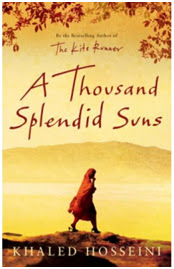God is a person, with a personality, with a character of distinctive features. As a spirit, God is neither a male nor female, but God has become known to humans with a male nature to the fore, in particular as Father, "based on the understanding of the intimate familial relationship"(*) humans have experienced with God. The Emory University-based theologian Gail O'Day writes:
This is how the first Christians saw Jesus-God active among them:
One other mysterious element of God's compassionate nature that Jesus reveals is that "Jesus did not come into the world clinging to his intimacy with His Father as if it were his private domain. He came to include us in His divine obedience. He wanted to lead us to God so that we could enjoy the same intimacy He did." (*) Obedience is integral within the community that makes the trinity of divine persons, and Jesus' obedience is "full undivided attention to the voice of His beloved Father". (*)
(*) Compassion, 2005 edition, H.J.M. Nouwen, D. P. McNeill, D. A. Morrison, New York, Doubleday.
(**) 'John' in Women's Bible Commentary, C.A Newsom and S.H. Ringe, eds (Louisville, KY; Westminster John Knox Press, 1998.
(***) Church Dogmatics, IV/1, K. Barth, Edinburgh, T.& T. Clark, Sons) 1956, p.188.
Just as it is false to the richness of the Christian tradition to use father language as generic language for God, it is equally false to the tradition to speak about God in general terms that flatten the vitality and depth of biblical metaphor and language. God is Father in John, and the Church's job is to move beyond the assumption that Father is simply a synonym for God and discover what father language in John contributes to a fuller understanding of God and the Christian life. (**)God has a story to tell, and one wonders what there is to tell about the billions of billions of billions of years before "our" universe was created 13 billion years ago. Of course, there are also multiverse theories relating to other universes pre-existing or co-existing with ours. Still, in a limited way, we do have insight into the nature of God. There are, first, insights into the existence of a being of ultimate significance built up by humans everywhere right from their origin, and even an awareness hinted at by the chimpanzees observed by Jane Goodall. Of greater importance to our understanding is the experience of the Hebrews over the 1850 years since the migration from Ur to Canaan of Abraham, who was answering a divine imperative; and, even more dramatically, those gained by living with Jesus of Nazareth, who the early Christian community quickly came to recognise is eternal God and, from a certain point in history, human as well.
This is how the first Christians saw Jesus-God active among them:
His state was divineFrom that experience of God-with-us, the Christians then and in subsequent eras have known God to be loving, compassionate, our healer, our servant, and on the cross, our redeemer. There is a great mystery about this that Compassion expresses this way:
yet He did not cling
to His equality with God
but emptied Himself
to assume the condition of a slave,
and became as we are;
and being as we are,
He was humbler yet,
even to accepting death,
death on a cross.
(Letter to the Philippians 2:6-8
The Jerusalem Bible)
By entering with us into the condition of a slave, God has been revealed to us. [But] self-emptying and humiliation are not a step away from God's true nature. ... Rather, in the emptied and humbled Christ we encounter God, we see who God really is, we come to know true divinity. ... As Karl Barth says, "God does not have to dishonour Himself when He goes into the far country and conceals His glory. For He is truly honoured in His concealment. This concealment, and therefore His condescension as such, is the image and the reflection in which we see Him as He is. (***)
 |
| Wounded healers: Artwork by Joel Filartiga |
(*) Compassion, 2005 edition, H.J.M. Nouwen, D. P. McNeill, D. A. Morrison, New York, Doubleday.
(**) 'John' in Women's Bible Commentary, C.A Newsom and S.H. Ringe, eds (Louisville, KY; Westminster John Knox Press, 1998.
(***) Church Dogmatics, IV/1, K. Barth, Edinburgh, T.& T. Clark, Sons) 1956, p.188.
